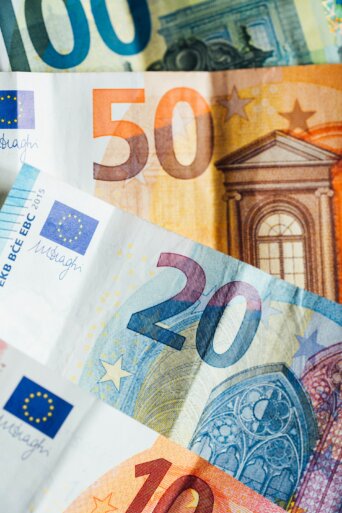- About
- Topics
- Picks
- Audio
- Story
- In-Depth
- Opinion
- News
- Donate
- Signup for our newsletterOur Editors' Best Picks.Send
Read, Debate: Engage.
| topic: | Economic Fairness |
|---|---|
| located: | Spain, France, United Kingdom, Italy |
| editor: | Abby Klinkenberg |
Amidst predictions that Europe faces up to ten ‘difficult’ winters ahead as it contends with Russia’s strangle-hold on the energy market, no deus ex machina is likely to make the cost-of-living crisis disappear. The UK’s inflation rate recently hit a 40-year high of 10.1 percent; the eurozone’s August inflation rate of 9.1 percent set a new record for the bloc. Across the continent, groceries and energy bills are quickly outstripping consumers’ ability to pay. With some economists saying the worst is yet to come, “the crisis is also set to prompt a rise in the number of households living in poverty.”
It is the role of the government to ensure that this does not happen. While the UK seems content to sit back and allow its population to grapple with an 80 percent spike in energy bills this year, some of its European neighbours are taking a more active approach to protecting consumers from the burden of the cost-of-living crisis. Legislation to enact hard caps on energy prices, value-added tax (VAT) cuts, and windfall-profit taxes on banks and energy companies have cropped up in various European parliaments in a concerted effort to support vulnerable populations meet their needs through these increasingly precarious times.
While it might be expected that the UK’s freedom to address the crisis outside the parameters of EU law would allow it to be more nimble in its response, the ruling Conservative Party has done very little with its power to mitigate the cost-of-living crisis. On 1 October, an elevated price cap will take effect that will raise the annual amount the average household spends on energy from 1,971 GBP to 3,549 GBP. In January, this figure is expected to rise again and surpass 4,000 GBP. While the UK is sending 1,200 GBP to low-income individuals to lessen this burden, “charities, public health leaders, and even energy firms warn of catastrophic effects on poorer people already struggling to afford essentials.” Even with such one-off payments, these rates are simply unaffordable for huge swaths of the population. A grassroots movement called ‘Don’t Pay’ has emerged in response to the hikes; it strives to pressure a more dynamic government response by enlisting one million people to commit to not paying energy bills once the increase is enacted on 1 October. All eyes will be on the next prime minister (who will be elected 5 September) to craft a better way forward that will not allow half of UK households to fall into fuel poverty by January.
Across the English Channel, the French government under President Macron has taken the opposite tack: instead of allowing energy price hikes, it has imposed a hard cap to insulate its residents from skyrocketing energy bills. By continuing to freeze gas prices at 2021 levels and limiting increases in the price of electricity to an annual rate of 4 percent, France has kept inflation relatively under control. Of the 19 countries using the euro, France’s 6.5 percent inflation rate in August was the lowest. While this may not be sustainable in the long term, it allows individuals to better maintain their standards of living and buys time for a concerted ameliorative policy to be formulated at the EU level. However, not everyone is happy with these measures: majority state-owned (and soon-to-be-nationalised) energy company EDF is suing the French government for 8.3 billion euros in losses after having been forced to sell its energy at a loss following the government’s decision to cap rising prices in January 2022. Despite the litigation, France has taken seriously its task of insulating its population from the brunt of current cost-of-living challenges and exists as an example to states like the UK.
Elsewhere, a number of proposals are pending that would provide valuable financial scaffolding for vulnerable communities. In Spain, Socialist Prime Minister Sanchez is striving to collect 7 billion euros from banks and energy companies over the next two years as part of a windfall profits tax. The proceeds would be returned to the people grappling with cost-of-living challenges. Sanchez also recently unveiled a free public transit scheme to help with rising fuel costs. In Italy, outgoing Prime Minister Draghi has advanced a new stimulus package that would remove the VAT on essential foods like bread and pasta while cutting the tax on meat and fish from 10 percent to 5 percent. Recent revenue spikes related to the rising price of consumer goods would support these breaks. While these measures proposed by Spain and Italy won’t be enough on their own, they reflect the kinds of creative thinking necessary to provide an adequate social safety net for everyone.
As Russia’s war in Ukraine rages on, food shortages and an even more dire energy crisis seem to lurk on Europe’s doorstep. The severity of the outlook demands that governments respond radically (both individually and in concert) and take full advantage of all financial levers to ensure that no populations are disproportionately burdened or left behind.
Photo by Markus Spiske
